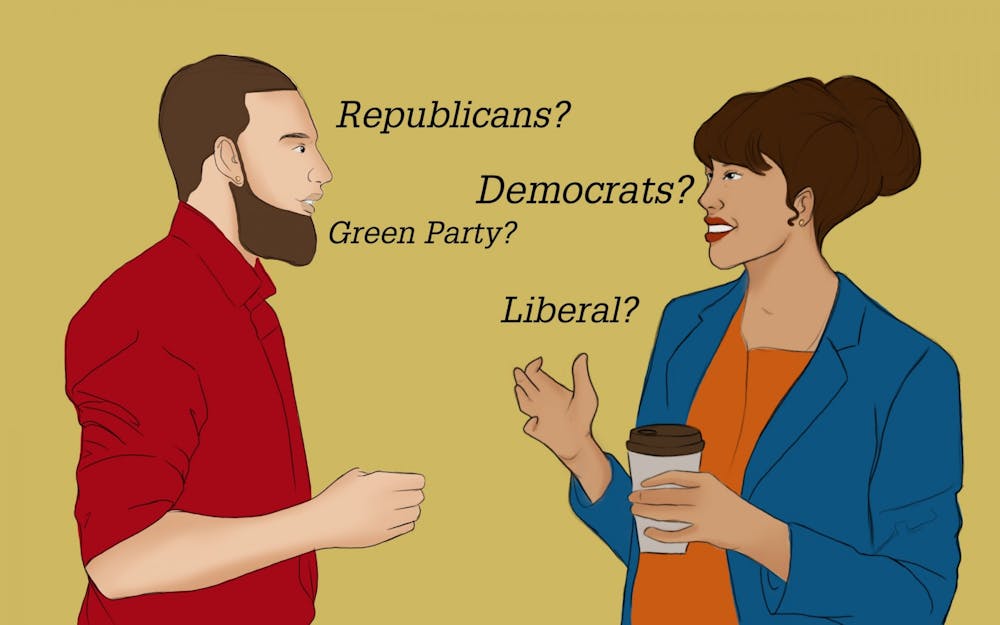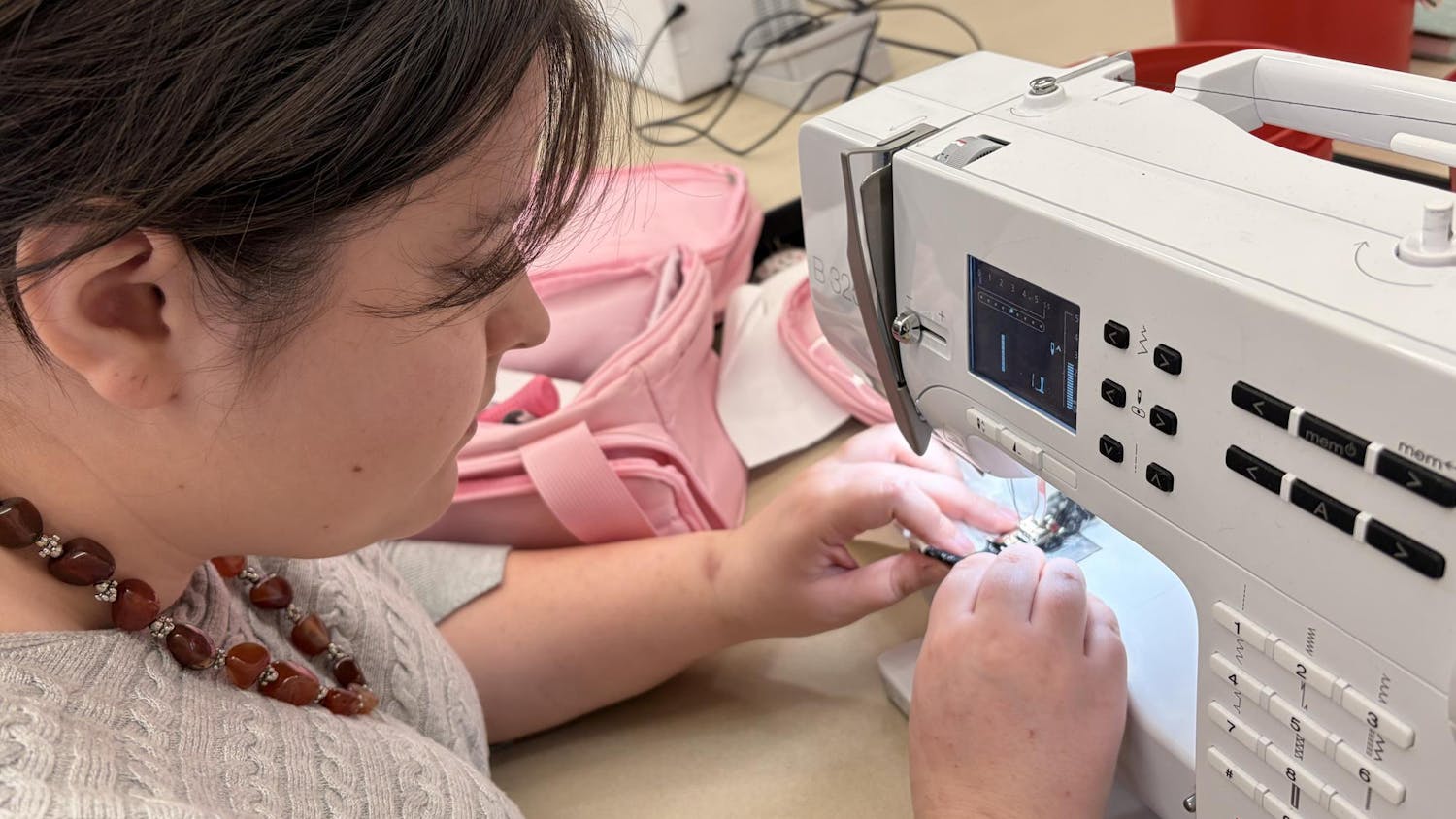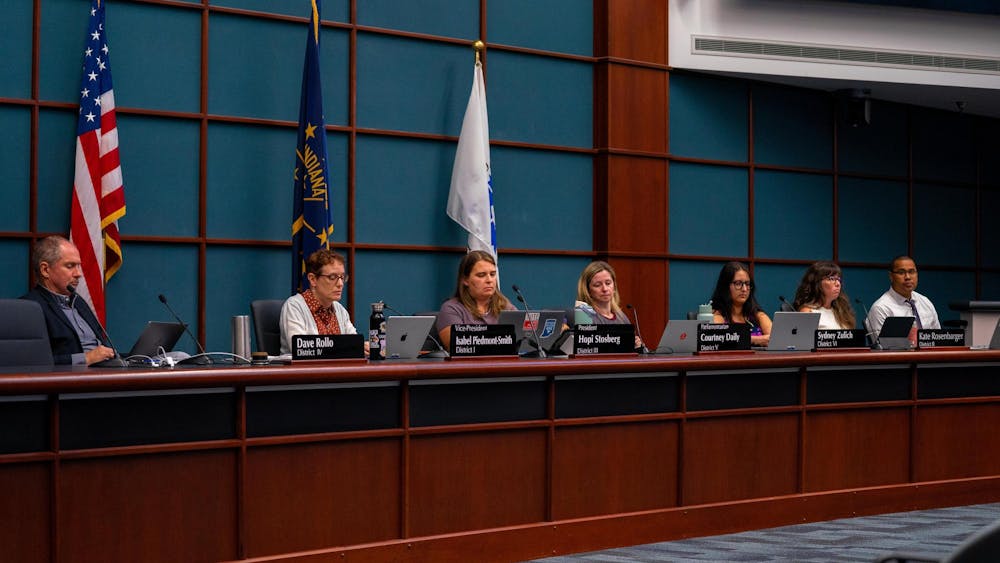From a very young age, I remember adults telling me not to talk about politics with others. In order to have a polite discussion, I was reminded that it was best to skirt around potentially inflammatory remarks to avoid alienating someone based on their political views.
As I've gotten older, and as the country has become more divided, this sentiment seems to increasingly resonate with Gen Z as many avoid political conversation altogether. For a while, I followed suit and kept my beliefs close to my chest, careful not to make a political point someone could judge. But as I've studied political science and become a more active citizen, I've realized that it's more important to have political conversations than to appease others by avoiding charged topics.
Americans of all ages shouldn't shy away from political conversation. Instead, we should engage in political conversation and seize every opportunity to understand different viewpoints and inform our own opinions.
In an article for LinkedIn, venture capitalist and author Richard A. Moran compares talking politics in the workplace to discussions of religion, salary and even sex.
"The topics are just too hot and emotionally charged to discuss and then just settle back into the cubicle," Moran said.
However, Moran’s closing statements seem to directly oppose his support of a politics-free work environment.
"Never lose your passion,” Moran said. “Never lose your commitment for doing the right thing. Never give up on inclusion. Keep making a difference, but as a discussion topic at work, politics are taboo."
While I agree that keeping the peace can be the best tactic in some social situations, Moran represents a part of society that contradicts their own arguments for the sake of proclaimed “social order.” Commitment to doing the right thing can't stop when you enter your workplace — otherwise, it's not commitment. Purposefully not advocating for representation for the sake of staying politically neutral is precisely what he tells us not to do — giving up on inclusion.
These rules don't just apply to a work environment but arguably to your entire life. From social events to school assignments, we cannot move toward a more inclusive and compassionate society living under Moran's rules. Without including our political beliefs and morals in our everyday lives, our democracy cannot reap the benefits that come with its inherent protection of diverse thought and perspectives.
I believe that an individual's gravitation toward political conversation is rooted in activism, curiosity and a drive to make their country a better place. Avoidance of political conversation is primarily rooted in the fear that what you have to say won't be accepted.
The problem is not the topic, but how many political conversations easily become a partisan debate instead of an exchange of ideas. These debates boil over and prevent the conversation from informing others’ opinions. If we get caught arguing along party lines, compromise and growth vanish.
U.S. political conversations do not have to be framed as Democrat versus Republican. We should discuss how to solve problems instead of arguing about who has the right answer. This not only requires people to provide reasons in defense of their beliefs but makes them more open to accepting other ideas as well.
Sam Waterman, president of College Democrats at IU, highlighted the importance of political discussion, especially with people she may disagree with, in her life as a political activist.
"Hearing how people's lives day to day are impacted really gives you a lot more purpose,” Waterman said. “It really gets you out of the little academic hypothetical thought bubble and makes the problems more immediate."
That's exactly why political conversations are important. Discussion is the first step of the political process, and increased dialogue about an issue can only lead to more involvement and a push to overcome the plights the U.S. faces today.
Hearing others' perspectives and personal experiences can only contribute positively to our personal beliefs and the national dialogue if we handle differences in opinion like mature adults. By listening and having respectful conversations, we can better understand the issues and each other. As long as opinions are rooted in fact and reason, not bigotry, even opinions we disagree with can challenge our personal views and push us to evaluate and reconsider.
"At the end of the day, we're all fighting for a good way of life," Waterman said.
We don’t need to constantly talk about politics, but we need to focus on normalizing it. Discussing current political events with people you know will benefit everyone involved. If we don't, we're sabotaging our understanding of important issues and drastically limiting our worldview.
Ultimately, we get to decide what topics are taboo in daily conversation. Let's make sure politics isn't one of those things.
Chris Sciortino (he/him) is a sophomore studying theatre and political science. He's an NPR and musical theatre fanatic, and also a proud member of the Singing Hoosiers.






